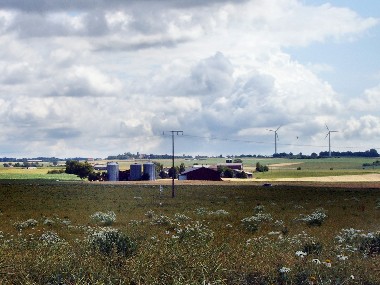Integrated land system modelling
 Project Leader: Prof. Dr. Thomas Berger, Institute of Agricultural Sciences in the Tropics, Department of Land Use Economics in the Tropics and Subtropics
Project Leader: Prof. Dr. Thomas Berger, Institute of Agricultural Sciences in the Tropics, Department of Land Use Economics in the Tropics and Subtropics
Funding period: 2015-2018
Various drivers affect the dynamics of land systems at the regional level and have therefore to be captured in land system modelling. Climate factors affect biophysical processes directly (for example, temperature and atmospheric CO2 change the rate of photosynthesis) and indirectly (for example, increasing temperature and change in precipitation alter the conditions for possible crop rotations and field work days, which affects the profitability of crop and livestock production).
Non-climate factors affect socio-economic processes through changes in policies and institutions and, most importantly, through the adjustments and adaptations of land users. Unfortunately, these drivers and impacts cannot easily be disentangled because they work interdependently, and certain processes, such as crop growth during flowering and fruiting, show strongly non-linear responses. Moreover, land users may succeed in compensating for some negative impacts on their livelihoods, while in other cases even exploiting and thereby increasing the positive impacts.
This project links model components of the various projects in this research unit to investigate interactions and feedbacks between biophysical and socio-economic processes at high resolution. The objective is to assess the vulnerability and sensitivity of typical land systems in Southwest Germany and to explore suitable adaptation strategies to climate change.
Phase 1: Integration of land system model components (funding period: 2012-2015)
